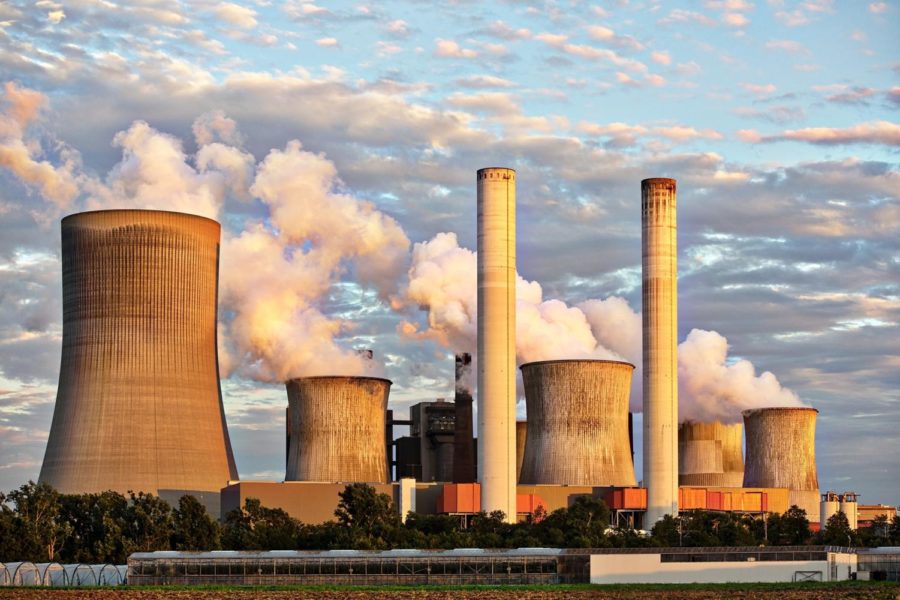President Joe Biden’s administration has made it clear that climate change will play a larger role in policy than it has in previous administrations. Biden’s proposed infrastructure plan, as explained by CNBC for example, “would rank as one of the largest federal efforts ever to curb the country’s planet-warming greenhouse gas emissions.” Ella Nilsen similarly wrote for Vox that “Biden’s goal is to make his economic recovery green.” By integrating climate into other policies like infrastructure, Biden has signaled that he understands the urgency of the climate crisis and is putting it at the center of policy.
What is less certain is the position of nuclear energy. Nuclear energy creates energy through the process of nuclear fission, which produces a substantial amount of energy. While there are only 98 nuclear plants in the United States, they produce about 20 percent of its energy. Furthermore, nuclear energy does not produce carbon dioxide, which makes it an extremely clean form of energy. Nuclear energy does produce radioactive waste, but it is compact and can be safely stored in substances like concrete. Another benefit of nuclear energy is that it could become a renewable source of energy in the future. While nuclear power’s source — uranium — currently has to be mined, uranium is also found in the ocean. If a method were developed for extracting this uranium, it would be impossible for the rate of extraction to outpace the rate at which it is replenished in the ocean. This would make nuclear energy an extremely dependable source of energy.
While leading climate scholars agree that some amount of nuclear energy is necessary to meet emissions goals, there is a reluctance amongst the public and on the left to support it. For one, creating nuclear power plants and reactors currently costs much more in the United States than in other countries like China. The memory of crises like the ones that happened in Chernobyl or Fukushima involving failing reactors have led many to believe that the risks surrounding nuclear energy are too great. Nuclear power is also typically associated with nuclear arms proliferation. It is because of these concerns that the initial proposal for the Green New Deal argued that nuclear energy should be phased out in favor of renewable sources like wind and solar.
But while many believe that nuclear energy is too risky, a number of scientists have argued that nuclear energy is in fact, “the safest form of energy humanity has ever used.” In a New York Times article by Joshua Goldstein, Staffan Qvist and Steven Pinker, they observed that the all-time total number of deaths related to nuclear power only adds up to the average number of coal-related deaths per month. The historian Richard Rhodes has similarly noted that “even the worst possible accident at a nuclear plant is less destructive than other major industrial accidents.” As for the issue of price, Goldstein et. al argue that the price of nuclear energy will inevitably go down as more innovations are made that reduce production costs. This is characteristic of a lot of new technologies (the first iPhone cost $150 million dollars to develop). It is clear that our memory of past nuclear disasters is preventing us from making rational assessments of nuclear energy’s safety.
However, Democrats seem to have recently adopted a more inclusive stance towards nuclear energy. The 2020 Democratic Platform endorsed a “technology-neutral” approach, which would include all zero-carbon energy sources including nuclear. This is the first time Democrats have adopted a positive stance towards nuclear energy since 1972. While this marks an important change in policy, the platform still focuses most of its efforts on building up wind and solar energy. Robert Bryce has argued in Forbes that the energy goals Democrats have set will be impossible to meet if they continue to rely so heavily on wind and solar energy.
While moving more towards nuclear energy is essential for combatting climate change, it also has a fair degree of bipartisan support. Last year, Congress passed the Nuclear Energy Leadership Act with bipartisan support. This bill increased funding towards innovative nuclear energy technologies. With Democrats only holding a narrow majority in Congress, nuclear energy could be essential to crafting policies that can garner enough Republican support.
The Biden Administration will be able to make historic progress towards clean energy if it decides to give nuclear energy a major role in climate policy. Biden has already signaled some willingness to invest in nuclear power, but to what extent is unclear. Solar, wind and even natural gasses will also probably be necessary, but we will fail to meet the challenges of the climate crisis if we neglect nuclear energy. Nuclear power is demonstrably safe; the real risk comes from failing to realize the urgency of our climate crisis. When extinction is on the table, no options should be disregarded.
Benjamin Schnurr can be reached at [email protected].




















Robert Hargraves • Apr 22, 2021 at 1:58 pm
Benjamin, Unfounded public fear of radiation is the molasses that keeps nuclear power from solving the climate issue. A famous U Mass Amherst prof, Ed Calabrese, writes many papers on the unfounded public fear of radiation. Please look him up.